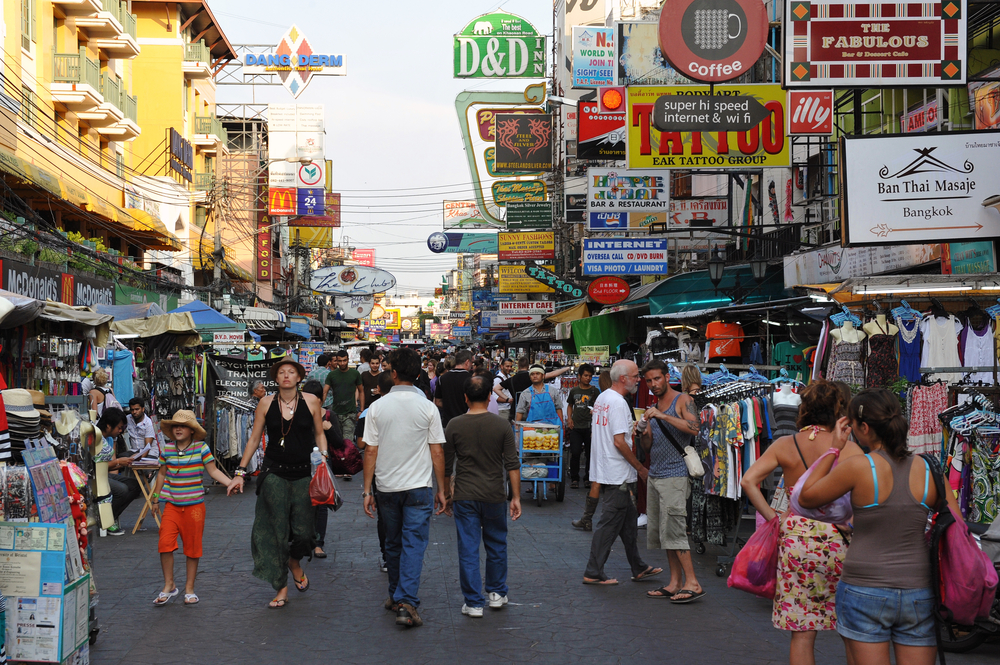World News
Cambodian workers’ return from Thailand not smooth
POIPET, Cambodia — As the number of Cambodian workers returning home under pressure from Thailand approached 200,000 on Tuesday, the returnees made troubling allegations about their treatment by Thai authorities.
While rumors of beatings and even killings by the Thai military have not been confirmed, several returnees have told of being extorted by soldiers or having relatives taken away, with their whereabouts still unknown.
Thailand’s military has been running the country since staging a coup on May 22. Martial law remains in force nationwide. It announced soon after the takeover it would crack down on the illegal employment of undocumented foreign workers, who number in the hundreds of thousands. They come mainly from the poorer neighboring countries of Cambodia and Myanmar and fill low-paying jobs in industry and services shunned by Thais.
Banteay Meanchey province governor Kor Samsarouet said Tuesday some 190,000 Cambodians workers had returned home this month, most through the checkpoint at Poipet.
Thai authorities have asserted that there has been no abuse involved in the repatriation of Cambodians, and that they left voluntarily, panicked by stories that some of their compatriots had been shot, or that they may be arrested. Some left after dismissal by their Thai employers, themselves liable to legal penalties for hiring them.
Underlying workers’ suspicions is bad blood between the two nations. Cambodians resent their bigger, richer neighbor, whose people they consider arrogant. The two nations have had several armed skirmishes in the past decade over disputed border territory, and Thai army and paramilitary rangers have been accused of shooting dead Cambodians who were allegedly logging illegally on the frontier.
Thailand’s foreign ministry has said there have been no deportations or forced repatriations of foreign workers. But comments by other officials are more nuanced, distinguishing between those who are working legally and those who are not among the Cambodian worker population, which may number as many as 400,000.
“There is no policy to round up migrant workers but if the authorities find illegal workers, then they must repatriate them,” Thai Labor Ministry Deputy Permanent Puntrik Smiti said Monday.
Several returned workers interviewed in Poipet confirmed fear had been their motivation to leave. But others spoke of problems with Thai authorities.
Sary Muy Huy, 43, said she had been waiting at the border checkpoint for three days, scanning the Thai trucks that arrive and discharge groups of returnees. She said her 25-year-old son went to work a month ago at a construction site in Sa Kaeo province in eastern Thailand.
She said that on the afternoon of June 9, he called to tell her, “Mom, I have been arrested by Thai soldiers.”
“Since then I have not heard any news from him,” she said.
Pen Thea has been waiting for two days for her 28-year-old son, who worked illegally at the same construction site in Sa Kaeo. She had also been working there, one among about 100 Cambodians, when a group of Thai soldiers arrived.
“When those soldiers arrived at our work site, they asked us if any Cambodians worked here. We replied, `Yeah, all of us are Cambodian,'” she said.
The soldiers asked them to stop working and told the women workers to pack their things for leaving Thailand, she said, and ordered the men to come with them. Her 28-year-old son and 42 other Cambodian men were loaded on to pickup trucks that then drove away. Pen Thea said she was too scared to ask the soldiers to let her son go because they looked tough.
“For the two days I have been here, I have seen many people, but not my son,” she said. “I am very worried for his safety. I cannot sleep or eat for the moment because I am thinking about his fate.”
Another woman who was returning home, 36-year-old Hem Pong, said she left Thailand voluntarily, but still met with trouble.
She said Thai officers near the border – she wasn’t sure if they were soldiers or military police – told her and the people she was with that they would each have to have their thumb prints taken and pay 500 baht (.
41). She paid.
“If we didn’t pay them, we would be dragged off and sent to Bangkok,” said the mother of two young boys.
Fear motivated Seng Soeun, 27, who had been working in construction in Thailand’s prosperous Chonburi province for three months. He said that on Friday, his boss told him that it was no longer safe for illegal Cambodian workers. He said they were welcome to take the risk of staying, but he could not guarantee their security.
“When I heard his words, I was shocked, and thought I would be arrested if I continued to live in Thailand because I am an illegal worker,” he said, grasping the side of a Cambodian army truck that was taking him further along his journey home to Cambodia’s Kampong Speu province.
He and some friends hid in a forest in Chonburi for three nights, sleeping in hammocks.
“In the forest I could not sleep well because I was worried about running away if Thai solders or military police approached us,” he said. “When we heard dogs barking, all of us woke up and got ready to run.” They slipped out to a market only at night or early morning to get food.
He said that even if he could do so legally, he had decided he would not return to Thailand.
“In Thailand, life is better than in Cambodia, in terms of earning money,” he said. “But I am Cambodian, I cannot speak Thai, so my life is at risk.”






















